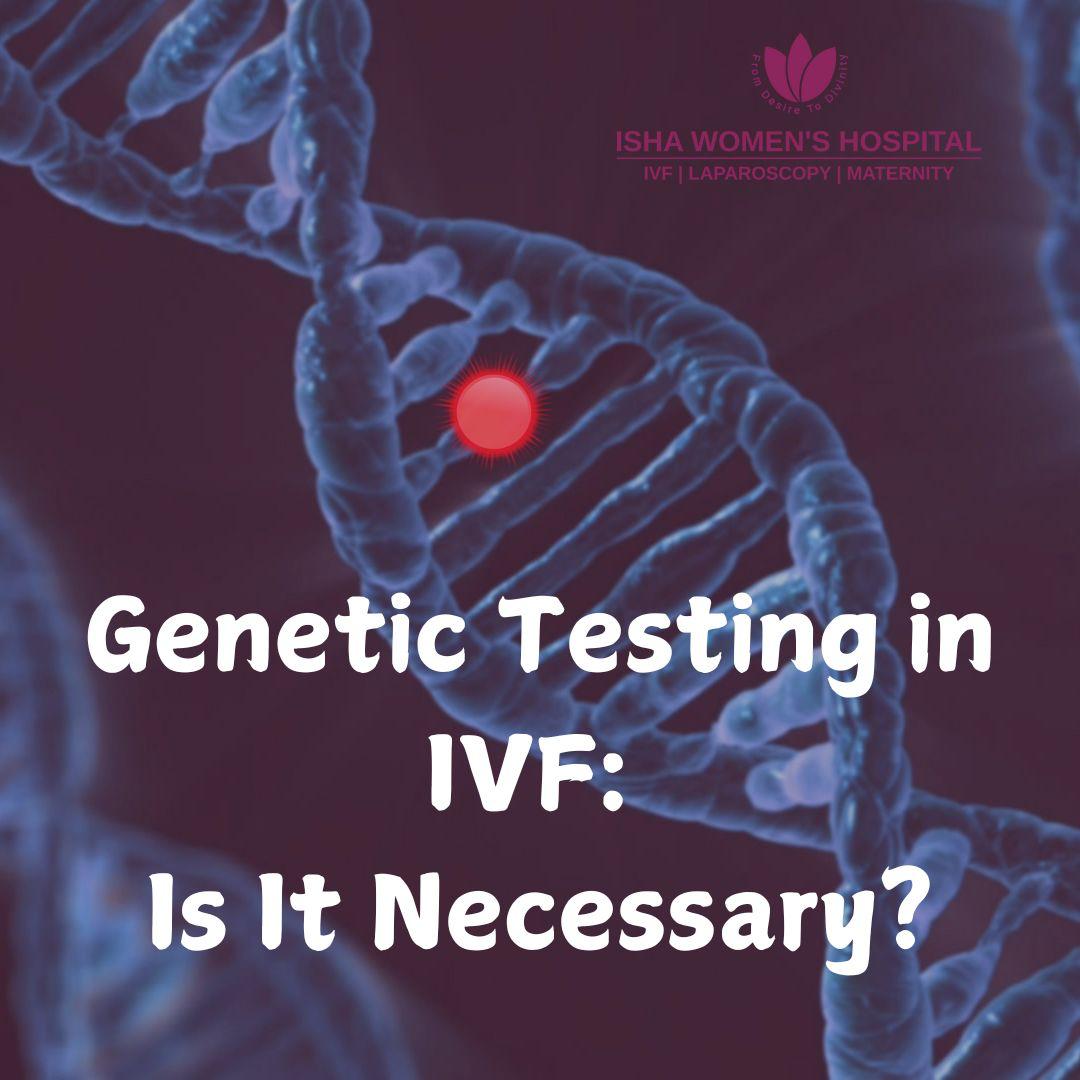Genetic Testing in IVF: Is It Necessary?

What is Genetic Testing in IVF?
Preimplantation Genetic Testing for Aneuploidy (PGT-A):
- Detects chromosomal abnormalities (extra or missing chromosomes)
- Reduces the risk of miscarriage and implantation failure
- Recommended for older women, those with recurrent pregnancy loss, or previous failed IVF cycles
Preimplantation Genetic Testing for Monogenic Disorders (PGT-M):
- Screens for single-gene disorders such as cystic fibrosis, sickle cell anaemia, and Tay-Sachs disease
- Ideal for couples with a family history of genetic conditions
Preimplantation Genetic Testing for Structural Rearrangements (PGT-SR):
- Identifies chromosomal translocations and other structural abnormalities
- Recommended for couples with known chromosomal rearrangements
Why is Genetic Testing Important?
1. Improved IVF Success Rates: Selecting genetically normal embryos increases the chances of implantation and reduces the likelihood of failed IVF cycles.
2. Reduced Risk of Genetic Disorders: Couples carrying genetic conditions can prevent passing them on to their children.
3. Lower Risk of Miscarriage: Chromosomal abnormalities are a leading cause of miscarriage. PGT helps in selecting embryos with the right number of chromosomes.
4. Personalized Treatment Approach: Genetic testing allows fertility specialists to tailor the IVF process for better outcomes.
Is Genetic Testing Necessary for Everyone?
- Women above 35 years (higher risk of chromosomal abnormalities)
- Couples with a history of recurrent pregnancy loss
- Individuals with previous IVF failures
- Carriers of hereditary genetic disorders
If you fall into any of these categories, discussing genetic testing with an expert fertility specialist is crucial for improving your chances of a successful pregnancy.
Frequently Asked Questions (FAQs)
Answer: Genetic testing in IVF, often called PGT (Preimplantation Genetic Testing), involves screening embryos for genetic abnormalities before they are transferred into the uterus. It helps identify embryos with the correct number of chromosomes or those free from specific inherited conditions, improving the chances of a healthy pregnancy.
2. Is genetic testing necessary for all IVF patients?
Answer: No, it's not required for everyone. Genetic testing is typically recommended for:
- Women over 35 years of age
- Couples with a history of recurrent miscarriages
- Those with repeated IVF failures
- Known carriers of genetic disorders
- Cases of male factor infertility
It can improve outcomes in these situations, but your fertility specialist will advise whether it's suitable for you.
3. What types of genetic testing are available in IVF?
Answer: The main types of genetic testing used in IVF include:
- PGT-A (for aneuploidy): Checks for abnormal chromosome numbers
- PGT-M (for monogenic disorders): Screens for inherited single-gene conditions
- PGT-SR (for structural rearrangements): Detects chromosomal translocations or inversions
4. Does genetic testing increase the chances of IVF success?
Answer: Yes. By identifying the healthiest embryos for transfer, genetic testing can improve implantation rates, reduce the risk of miscarriage, and increase the likelihood of a successful, full-term pregnancy—especially in high-risk cases.
5. Are there any risks or downsides to genetic testing in IVF?
Answer: The risks are minimal but may include a slight chance of damage to the embryo during biopsy. Additionally, genetic testing adds to the cost and duration of the IVF cycle. It’s important to discuss the benefits and limitations with your fertility specialist before deciding.
Conclusion
If you’re considering IVF and wondering whether genetic testing is right for you, schedule a consultation with Dr Chinmay Pataki at Isha Women’s Hospital. As the best fertility centre in Thane, Isha Women’s Hospital offers expert guidance, advanced fertility treatments, and compassionate care to help you achieve your dream of parenthood.
Contact us today to begin your journey towards a healthy and successful pregnancy!
